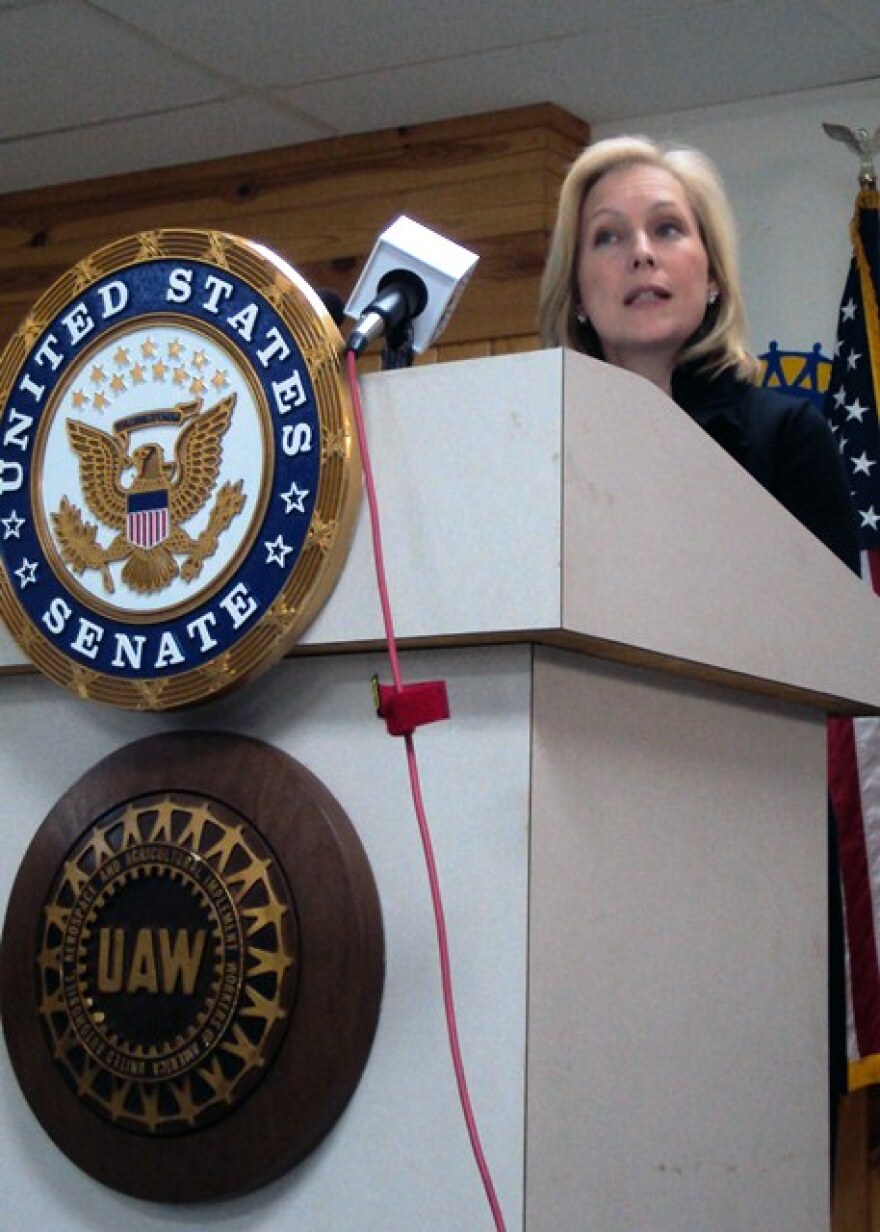Standing in a Syracuse union hall that will close later this year, Sen. Kirsten Gillibrand announced support Monday for a bill that would allow the U.S. government to slap tariffs on foreign-made auto parts.
United Auto Workers Local 624 and 2149 once supported about 4,000 workers at nearby New Process Gear. The factory, which makes parts for SUVs, is also slated to shut down later this year.
Union leaders say Gillibrand's efforts may be too late for New Process Gear, but they could help other plants in upstate New York."You gotta start somewhere," says Local 2149 President James Dagnisi. "If you take the attitude that it's too late here, let's not do it, then it doesn't get started. It's gotta start and it's gotta grow and maybe we'll save someone else."
Gillibrand also traveled to Buffalo and Rochester to announce support for the measure Monday.
In Washington, the Senate approved the legislation.
The bipartisan bill would allow the Commerce Department to place a tariff on foreign-made auto parts. Gillibrand says such tariffs will even out prices on the global market.
"They want our markets and we want their markets," says Gillibrand. "I think the way we have long-term success is showing that we can productively export our goods and they can productively export their goods."
The Chinese government is keeping the cost of parts low by subsidizing overhead - like energy and supplies - for manufacturers, Gillibrand says.
She says such subsidies are not fair.
"They try everything because they're trying to create a growing economy," says Gillibrand. "What the U.S. has is not only our work ethic, but also our innovation."
According to Gillibrand, Chinese auto parts exports have increased almost 900 percent since 2000. She says the Chinese government has used nearly $28 billion in subsidies to make that happen.
The tariffs are not exactly new. A U.S. court ruled last year that the Commerce Department must stop the imposition of countervailing duties because they weren't Congressionally authorized. The proposed bill would grant that authorization.





